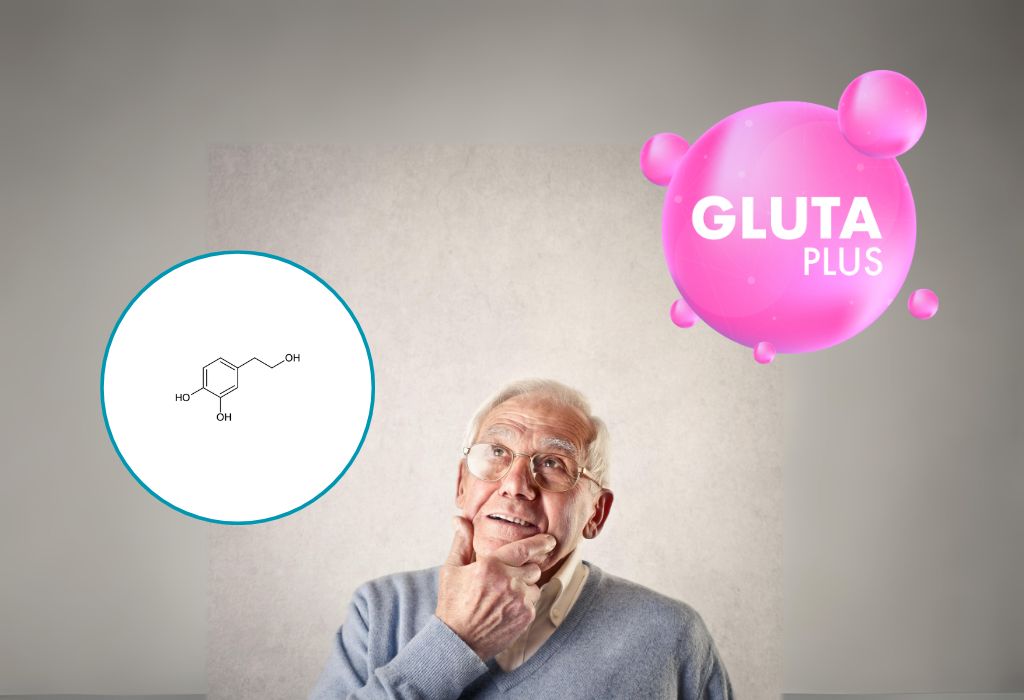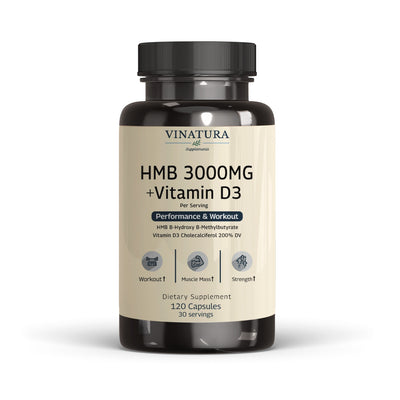
Hydroxytyrosol Vs Glutathione: Which Is Better For Anti-Oxidation?
To support the body in maintaining overall health, antioxidants such as Hydroxytyrosol and Glutathione are commonly considered, especially in light of environmental factors that may contribute to aging.
Oxidative stress has been associated with various health concerns, including metabolic and cardiovascular health. This article explores the properties of Hydroxytyrosol and Glutathione, both known for their antioxidant effects, to help understand their potential benefits.
Before exploring further, please read the disclaimer located at the end of this webpage.
Key Takeaways
- Hydroxytyrosol is a natural phenolic compound from olives, known for its strong antioxidant properties and potential to protect cardiovascular health.
- Glutathione is an endogenous antioxidant that detoxifies the body, supports liver health, and shields cells from damage.
- Both offer health benefits, but their mechanisms and applications for cellular protection differ significantly.
What Is Hydroxytyrosol And Glutathione?

Hydroxytyrosol is a phenolic compound derived from ripe olives, including the pulp and leaves, and is considered one of the strongest natural antioxidants. [1]
Hydroxytyrosol is noted for its ability to shield cells from free radical damage and support cardiovascular health. It is formed from the hydrolysis of oleuropein—a substance produced in olive fruit as a defense against pathogens and herbivores. [2]
In contrast, Glutathione is a tripeptide synthesized from three amino acids: glycine, cysteine, and glutamic acid. It is an endogenous antioxidant that naturally occurs in the body and plays a vital role in liver detoxification, regeneration of other antioxidants, and immune system support. [3]
Unlike Hydroxytyrosol, Glutathione has a high regenerative capacity. In other words, after neutralizing free radicals, it can synthesize itself to continue protecting cells.
Hydroxytyrosol Vs Glutathione: Which Is Better For Anti-Oxidation?
To compare the antioxidant abilities of Hydroxytyrosol and Glutathione, it is essential to understand how each affects the body at the cellular level.
Hydroxytyrosol primarily works outside cells, creating a protective layer that shields cells from harmful elements like pollutants, tobacco smoke, toxins, and UV rays.
Conversely, Glutathione promotes detoxification within the body, aiding the liver in removing toxins and filtering nutrients during absorption. It also enhances the absorption of vitamins C and E.
Thus, Hydroxytyrosol and Glutathione offer complementary protection from both internal and external sources to optimize health.
Hydroxytyrosol Vs Glutathione Health Benefits
Hydroxytyrosol
- Antioxidant & Cardiovascular Protection: After fully developing from oleuropein, Hydroxytyrosol enters the body to inhibit LDL cholesterol oxidation—which is important for maintaining healthy cardiovascular function. [4]
- Eye Protection: Research on mice with a high olive diet shows that “Aside from its antihypertensive effect, an ACE oil-enriched diet reduced NADPH oxidase activity/gene/protein expression (with major involvement of the NOX2 isoform) in the retinas of hypertensive mice.” [5]. Thus, Hydroxytyrosol holds promise for protecting the retina against damage and supporting eye health, countering conditions like macular degeneration, and supporting overall eye health.
- Anti-inflammatory Properties: Hydroxytyrosol also has anti-inflammatory properties and can improve endothelial dysfunction. According to a review published in the Journal of Biotechnology on its medical applications, “HT can improve endothelial dysfunction, lipid profiles, and hemostatic profiles and has anti-inflammatory properties” [6].
Glutathione
- Antioxidant Properties: Glutathione helps prevent cellular and DNA damage during metabolism, repairs DNA, and protects it from environmental harm. [7]
- Detoxification: Glutathione is a primary detoxifier for the body, helping the liver eliminate toxins and stabilize digestive activity. [8]
- Immune System Support: Scientific reports indicate that a well-functioning immune system is associated with balanced intracellular glutathione levels. Even moderate changes in intracellular glutathione levels can profoundly impact lymphocyte function. [9]
Therefore, Glutathione significantly influences our immune system.
Incorporating Hydroxytyrosol Vs Glutathione Into Your Diet
To absorb these compounds optimally, it is best to incorporate them into your diet or use supplements. Hydroxytyrosol is predominantly found in pure olives, olive oil, and other olive-derived extracts.
For Glutathione, sources can be boosted by consuming sulphur-rich foods like cabbage, onions, garlic, and asparagus. Supplements rich in NAC (N-acetylcysteine), a Glutathione precursor, are also available.
Thus, both products can be supplemented through natural sources of dietary supplements, offering flexible options.
Notes On Using Hydroxytyrosol And Glutathione

Before using Hydroxytyrosol and Glutathione, it is essential to check for potential drug interactions. Hydroxytyrosol has minimal drug interactions, but Glutathione may require careful evaluation and medical supervision.
Both compounds may cause mild side effects, such as nausea, digestive discomfort, and bloating. For safety, consult healthcare experts for personalized recommendations before supplementing with these compounds.
Conclusion
In summary, both Hydroxytyrosol and Glutathione play essential roles in anti-oxidation, immune enhancement, and general health protection.
Hydroxytyrosol protects cells from environmental damage, while Glutathione supports endogenous detoxification, cell protection, and regeneration. With this information, you can select the product best suited to your health needs.
References
- [1] Fernández-Mar MI, Mateos R, Garcia-Parrilla MC, Puertas B, Cantos-Villar E (2012-02-15). "Bioactive compounds in wine: Resveratrol, hydroxytyrosol and melatonin: A review". Food Chemistry. 130 (4): 797–813. doi:10.1016/j.foodchem.2011.08.023. ISSN 0308-8146.
- [2] Charoenprasert S, Mitchell A (July 2012). "Factors influencing phenolic compounds in table olives (Olea europaea)". Journal of Agricultural and Food Chemistry. 60 (29): 7081–7095. doi:10.1021/jf3017699. PMID 22720792.
- [3] Pompella A, Visvikis A, Paolicchi A, De Tata V, Casini AF (October 2003). "The changing faces of glutathione, a cellular protagonist". Biochemical Pharmacology. 66 (8): 1499–1503. doi:10.1016/S0006-2952(03)00504-5. PMID 14555227.
- [4] Martínez-González MA, Gea A, Ruiz-Canela M (March 2019). "The Mediterranean Diet and Cardiovascular Health". Circulation Research. 124 (5): 779–798. doi:10.1161/CIRCRESAHA.118.313348. PMID 30817261.
- [5] Santana-Garrido, Álvaro, et al. “Retinoprotective Effect of Wild Olive (Acebuche) Oil-Enriched Diet Against Ocular Oxidative Stress Induced by Arterial Hypertension.” Antioxidants, vol. 9, no. 9, Sept. 2020, p. 885. https://doi.org/10.3390/antiox9090885.
- [6] Bertelli, Matteo, et al. “Hydroxytyrosol: A Natural Compound With Promising Pharmacological Activities.” Journal of Biotechnology, vol. 309, Dec. 2019, pp. 29–33. https://doi.org/10.1016/j.jbiotec.2019.12.016.
- [7] Averill-Bates, Diana A. “The Antioxidant Glutathione.” Vitamins and Hormones, Jan. 2023, pp. 109–41. https://doi.org/10.1016/bs.vh.2022.09.002.
- [8] Pastore, Anna, et al. “Analysis of Glutathione: Implication in Redox and Detoxification.” Clinica Chimica Acta, vol. 333, no. 1, June 2003, pp. 19–39. https://doi.org/10.1016/s0009-8981(03)00200-6.
- [9] Dröge, Wulf, and Raoul Breitkreutz. “Glutathione and Immune Function.” Proceedings of the Nutrition Society, vol. 59, no. 4, Nov. 2000, pp. 595–600. https://doi.org/10.1017/s0029665100000847.
Author

Product Disclaimer
The dietary supplement products mentioned on this website are formulated based on scientific research and adhere to FDA guidelines for dietary supplements. However, the content of the articles has not been evaluated by the Food and Drug Administration (FDA) and is not intended to promote or endorse any specific product. Any products sold on this website are not intended to diagnose, treat, cure, or prevent any disease.
Opinions and Endorsements
Any claims, statements, or opinions expressed in the articles are those of the author(s) and do not necessarily reflect the views or opinions of the manufacturers of the dietary supplement products. The products sold on this website are separate from the content of the articles and are not directly endorsed or associated with the information presented here.
Liability Disclaimer
The author(s) of the articles, website, and manufacturers of the dietary supplement products do not assume any liability for any potential consequences arising from the use of the information provided in the articles. It is recommended that individuals consult with a qualified healthcare professional before making any dietary or lifestyle changes, including the use of dietary supplements.
Product Usage
Please refer to the product labels and packaging for specific usage instructions and guidelines for the dietary supplement products sold on this website.
Customer Support
For any concerns or questions regarding the dietary supplement products, please contact our customer support team, who will be more than happy to assist you.





Leave a Comment
Be the first to comment.
What do you think?